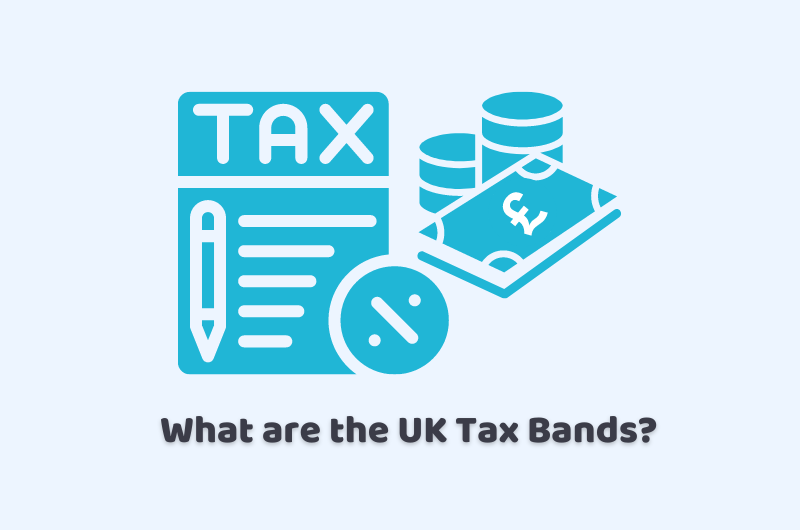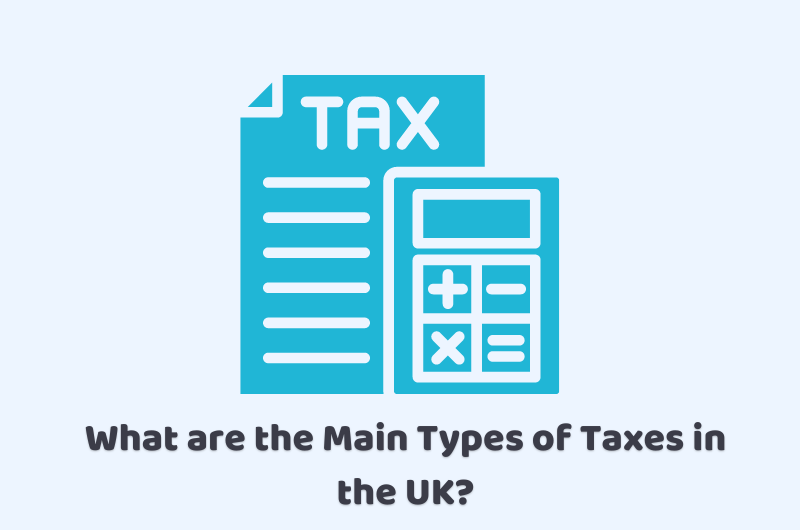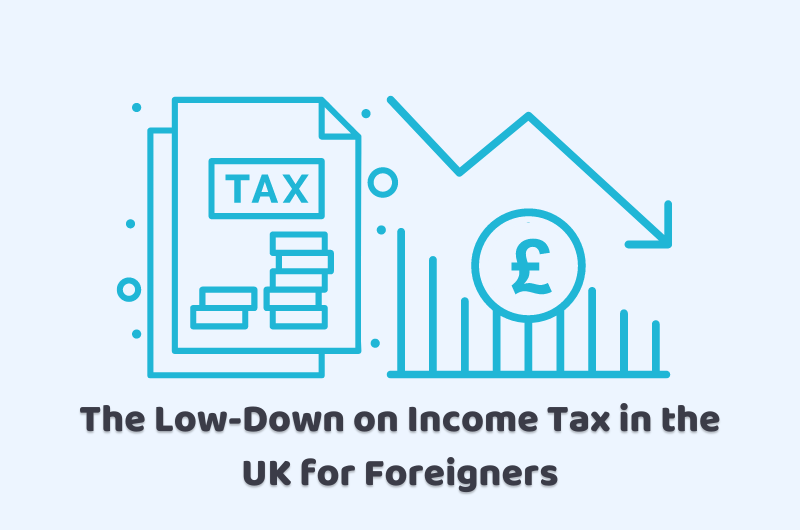
11/07/2023tax , Tax Issues , Tax News and Tips , Tax Saving Tips , Taxation
As the UK tax bands keep on changing with every new tax year, the limit of allowances will also be helpful for the citizens to reduce the amount of tax they pay to HMRC. The expectation of different forms of tax in the tax year 2023-2024 is discussed in this comprehensive guide.
Reach out to our intelligent and clever-minded guys to get the answer to your queries in the UK, we will get to your answers quickly. We will help to decide how to deal with your tax implications.
What is a Tax Band?
A tax band is a range of income that is subject to a particular rate of tax. In the UK, there are several tax bands for income tax, each with its own rate of tax. For example, the basic rate tax band for the 2023/2024 tax year is between £12,571 and £50,270, and the tax rate for this band is 20%. If your income falls within this band, you will pay a 20% tax on the amount of income that exceeds the personal allowance.
What is the Income Tax Band in the UK?
In the UK, the income tax bands for the 2023/2024 tax year are:
- Personal allowance: £12,570
- Basic rate tax band: upto £37,700
- Higher rate tax band: £37,701 to £125,140
- Additional rate tax band: Above £125,140
The tax rates for these bands are 0%, 20%, 40%, and 45%, respectively. It’s important to note that these tax bands and rates are subject to change each year.
What are the Dividend Income Tax Rates and Dividend Allowance?
Dividend income is taxed differently than regular income. The dividend allowance is the amount of dividend income you can receive each tax year before you have to pay tax on it. For the 2023/2024 tax year, the dividend allowance is £1,000.
If your dividend income is above the dividend allowance, you will pay tax on the excess amount. The amount of tax you pay on your dividend income depends on your income tax band. For basic rate taxpayers, the tax rate on dividend income is 8.75%. For higher-rate taxpayers, the tax rate on dividend income is 33.75%. For additional rate taxpayers, the tax rate on dividend income is 39.35%.
What is the Personal Savings Allowance and Starter Rate for Savings?
The personal savings allowance is the amount of savings income you can receive each tax year before you have to pay tax on it. For the 2023/2024 tax year, the personal savings allowance is:
- £1,000 for basic rate taxpayers
- £500 for higher-rate taxpayers
- £0 for additional rate taxpayers
The starter rate for savings is a special rate of tax that applies to savings income for people with low incomes. For the 2023/2024 tax year, the starter rate for savings is 0% on the first £5,000 of savings income.
What is the Capital Gains Tax Allowance?
The capital gains tax allowance is the amount of profit you can make on the sale of an asset before you have to pay capital gains tax on it. For the 2023/2024 tax year, the capital gains tax allowance is £6,000.
If your total gains for the year are below the allowance, you won’t have to pay any capital gains tax. If your gains are above the allowance, you’ll pay capital gains tax on the excess amount. The rate of capital gains tax you pay depends on your income tax band. For basic rate taxpayers, the rate is 10%. For higher rate and additional rate taxpayers, the rate is 20%.
What is the Tax Band of ISAs?
ISAs (Individual Savings Accounts) are a type of savings account that offer tax-free interest and gains. This means that you don’t have to pay income tax or capital gains tax on any interest or gains you earn from your ISA.
ISAs do not have a specific tax band because they are not subject to income tax or capital gains tax. However, there are limits to how much you can contribute to an ISA each tax year. For the 2023/2024 tax year, the overall ISA allowance is £20,000. This means you can save up to £20,000 in an ISA each tax year without having to pay tax on the interest or gains you earn.
What are Junior ISAs and What is their Tax Band?
Junior ISAs are savings accounts designed for children under the age of 18 who live in the UK. They work in a similar way to regular ISAs, but they have lower contribution limits and are managed by a parent or guardian until the child turns 18.
The tax treatment of junior ISAs is the same as regular ISAs. This means that any interest or gains earned on the money in the account is tax-free. For the 2023/2024 tax year, the overall junior ISA allowance is £9,000. This means that up to £9,000 can be saved in a junior ISA each tax year without having to pay tax on the interest or gains earned.
Pensions
The tax treatment of pensions depends on the type of pension you have and how you take your benefits. In general, contributions to a pension are tax-free up to certain limits, and any investment growth within the pension is also tax-free. However, when you start to take money out of your pension, you may be subject to income tax on the payments you receive.
The income tax you pay on your pension payments depends on your income tax band. For the 2023/2024 tax year, the basic rate of income tax is 20%, the higher rate is 40%, and the additional rate is 45%. The amount of tax you pay on your pension will depend on your income in retirement and any other sources of income you have.
Inheritance Tax
An inheritance tax is a tax that is paid on the value of an estate after someone has died. The estate includes all of the assets, such as property, money, and possessions, that the person owned at the time of their death.
There are some exemptions and reliefs available that can reduce the amount of inheritance tax payable, such as the spouse or civil partner exemption and the main residence nil-rate band. However, these exemptions and reliefs are subject to certain conditions and limitations.
The Bottom Line
There are various taxes in the UK, and the tax treatment of each type of income or asset can be different. It’s important to understand the tax rules that apply to your situation and to seek professional advice if you’re unsure. If you have any other questions about taxes or other financial matters, feel free to ask!
Our team of professional members loves to hear out your problems and find out the possible and suitable solutions quickly for small businesses’ accounting problems. Call us or email us today.
Disclaimer: The information provided in this blog is about UK tax bands, including the text and graphics, in general. It does not intend to disregard any of the professional advice.



